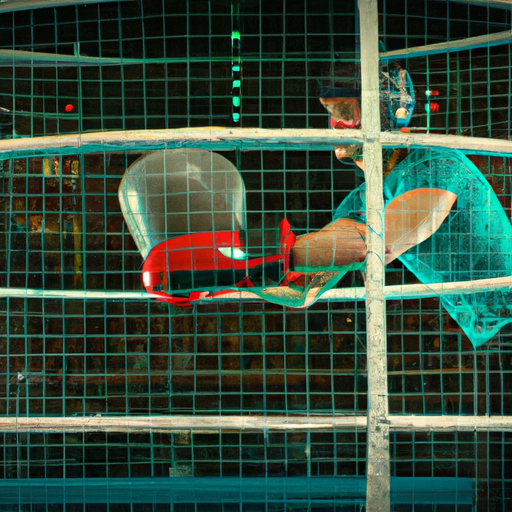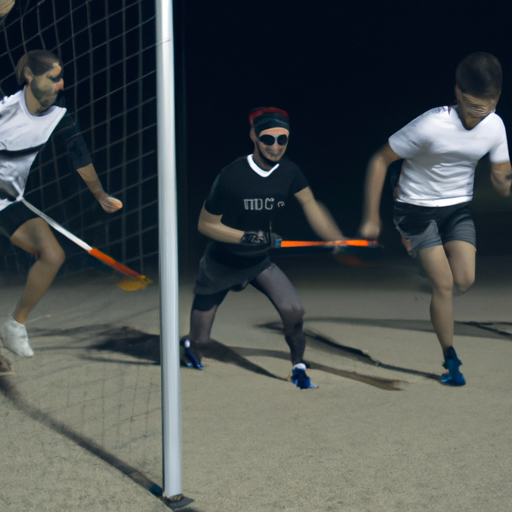Rights of the athlete

The Importance of Protecting Athletes’ Rights in Professional Sports
The Importance of Protecting Athletes’ Rights in Professional Sports
Professional athletes are the backbone of the sports industry. They entertain millions of fans around the world with their exceptional skills and dedication to their craft. However, behind the glitz and glamour of professional sports, there is a pressing need to protect the rights of these athletes. This article will delve into the importance of safeguarding athletes’ rights in professional sports and the implications of neglecting this crucial aspect.
First and foremost, athletes have the right to fair compensation for their efforts. They dedicate countless hours to training, sacrificing their personal lives and enduring physical and mental strain. It is only fair that they receive adequate financial compensation for their hard work. Unfortunately, there have been instances where athletes have been exploited by team owners and sponsors, receiving meager salaries while generating enormous profits for others. This blatant disregard for their rights not only undermines their motivation but also perpetuates an unfair system that benefits only a select few.
Furthermore, athletes have the right to a safe and healthy working environment. Injuries are an inherent risk in sports, but it is the responsibility of team owners and sports organizations to minimize these risks and provide proper medical care when injuries occur. Neglecting this duty can have severe consequences, both physically and mentally, for the athletes. Chronic injuries can lead to long-term health issues, affecting their ability to continue their careers and enjoy a fulfilling life after retirement. By ensuring a safe working environment, athletes can focus on their performance without worrying about unnecessary risks to their well-being.
Another crucial aspect of protecting athletes’ rights is safeguarding their privacy. Athletes, like any other individuals, deserve the right to privacy and personal autonomy. Unfortunately, the fame and public scrutiny that come with being a professional athlete often infringe upon these rights. The media and paparazzi constantly invade their personal lives, seeking to exploit any scandal or controversy for their own gain. This invasion of privacy can have detrimental effects on the mental health and overall well-being of athletes. It is essential for sports organizations and the media to respect their privacy and allow them to have a semblance of a normal life outside of their profession.
Moreover, athletes have the right to fair representation and the ability to voice their opinions. They should be able to participate in decisions that directly affect their careers and the sports industry as a whole. This includes having a say in matters such as league policies, contracts, and revenue sharing. Athletes are the driving force behind the success of professional sports, and their voices should be heard and respected. By involving them in decision-making processes, sports organizations can create a more inclusive and equitable environment that benefits all stakeholders.
In conclusion, protecting the rights of athletes in professional sports is of utmost importance. Fair compensation, a safe working environment, privacy, and the ability to voice their opinions are fundamental rights that should be upheld. Neglecting these rights not only undermines the well-being of athletes but also perpetuates an unfair system that benefits only a select few. It is the responsibility of sports organizations, team owners, and society as a whole to ensure that athletes are treated with the respect and dignity they deserve. By doing so, we can create a more equitable and sustainable sports industry that celebrates the achievements and contributions of athletes.
Understanding the Legal Rights and Responsibilities of Athletes

Understanding the Legal Rights and Responsibilities of Athletes
Athletes, whether professional or amateur, have certain legal rights and responsibilities that are important to understand. These rights and responsibilities can vary depending on the sport, the level of competition, and the specific circumstances of each athlete. In this article, we will explore some of the key legal rights and responsibilities that athletes should be aware of.
One of the most fundamental rights of athletes is the right to fair treatment. This includes the right to compete in a fair and unbiased environment, free from discrimination or harassment. Athletes have the right to be judged solely on their performance and abilities, without any consideration of their race, gender, or other protected characteristics. This right is protected by various laws and regulations, such as the Civil Rights Act and Title IX.
Another important right of athletes is the right to privacy. Athletes, like any other individuals, have the right to keep certain aspects of their personal lives private. This includes their medical records, financial information, and other personal details. However, it is important to note that this right is not absolute, and there may be certain circumstances where an athlete’s privacy can be legally invaded, such as in cases of suspected doping or criminal activity.
Athletes also have the right to be compensated for their talents and efforts. This includes the right to negotiate and enter into contracts with teams, sponsors, and other entities. Athletes have the right to receive fair and reasonable compensation for their services, as well as any additional benefits or incentives that may be included in their contracts. However, it is important for athletes to understand the terms and conditions of their contracts, as well as any potential limitations or restrictions that may be imposed.
In addition to their rights, athletes also have certain responsibilities. One of the most important responsibilities of athletes is to adhere to the rules and regulations of their sport. This includes following the rules of fair play, as well as any specific rules or guidelines set forth by the governing bodies of their sport. Athletes are also responsible for maintaining their physical and mental well-being, as well as complying with any anti-doping regulations that may be in place.
Athletes also have a responsibility to act as role models and ambassadors for their sport. This includes conducting themselves in a professional and ethical manner both on and off the field. Athletes should strive to promote the values of fair play, sportsmanship, and respect for others. They should also be mindful of their actions and how they may impact their reputation and the reputation of their sport.
In conclusion, understanding the legal rights and responsibilities of athletes is crucial for both athletes themselves and those who work with them. Athletes have the right to fair treatment, privacy, and compensation for their talents and efforts. They also have the responsibility to adhere to the rules and regulations of their sport, as well as to act as role models and ambassadors for their sport. By understanding and respecting these rights and responsibilities, athletes can navigate the legal landscape of their sport with confidence and integrity.
Exploring the Ethical Considerations Surrounding Athletes’ Rights
Exploring the Ethical Considerations Surrounding Athletes’ Rights
Athletes are often seen as heroes and role models, admired for their physical prowess and dedication to their sport. However, behind the glitz and glamour of the sports world, there are ethical considerations that need to be addressed when it comes to the rights of athletes. These considerations touch upon various aspects of an athlete’s life, including their privacy, freedom of expression, and fair treatment.
One of the key ethical considerations surrounding athletes’ rights is their right to privacy. Athletes, like any other individuals, have a right to keep certain aspects of their personal lives private. However, due to their fame and public status, athletes often find themselves under constant scrutiny from the media and the public. This invasion of privacy can have a detrimental impact on an athlete’s mental health and overall well-being. It is important for society to recognize and respect an athlete’s right to privacy, allowing them to have a personal life separate from their professional career.
Another ethical consideration is an athlete’s freedom of expression. Athletes, like any other citizens, have the right to express their opinions and beliefs. However, due to their public image, athletes often face backlash and criticism when they express views that are deemed controversial or unpopular. This can lead to self-censorship, where athletes refrain from expressing their true thoughts and feelings out of fear of negative consequences. It is crucial for society to create an environment where athletes feel comfortable expressing themselves without fear of retribution, as long as their expressions do not incite violence or harm others.
Fair treatment is also a significant ethical consideration when it comes to athletes’ rights. Athletes dedicate their lives to their sport, investing countless hours of training and sacrificing personal time and relationships. In return, they deserve to be treated fairly and justly. This includes fair compensation for their efforts, equal opportunities for advancement, and protection from exploitation. Unfortunately, there have been instances where athletes have been taken advantage of, whether through unfair contracts, unequal pay, or abusive coaching practices. It is essential for sports organizations and governing bodies to prioritize fair treatment and ensure that athletes are not subjected to any form of exploitation.
Furthermore, the issue of doping and performance-enhancing drugs raises ethical concerns regarding athletes’ rights. Doping not only undermines the integrity of sports but also poses serious health risks to athletes. Athletes should have the right to compete in a fair and clean environment, free from the pressure to use performance-enhancing substances. It is the responsibility of sports organizations and governing bodies to enforce strict anti-doping policies and provide education and support to athletes to ensure their rights are protected.
In conclusion, the rights of athletes are a complex and multifaceted issue that requires careful consideration. Athletes have the right to privacy, freedom of expression, fair treatment, and a clean and fair sporting environment. It is crucial for society, sports organizations, and governing bodies to recognize and respect these rights, ensuring that athletes are able to pursue their careers with dignity and integrity. By addressing these ethical considerations, we can create a more equitable and just sports world for athletes to thrive in.

